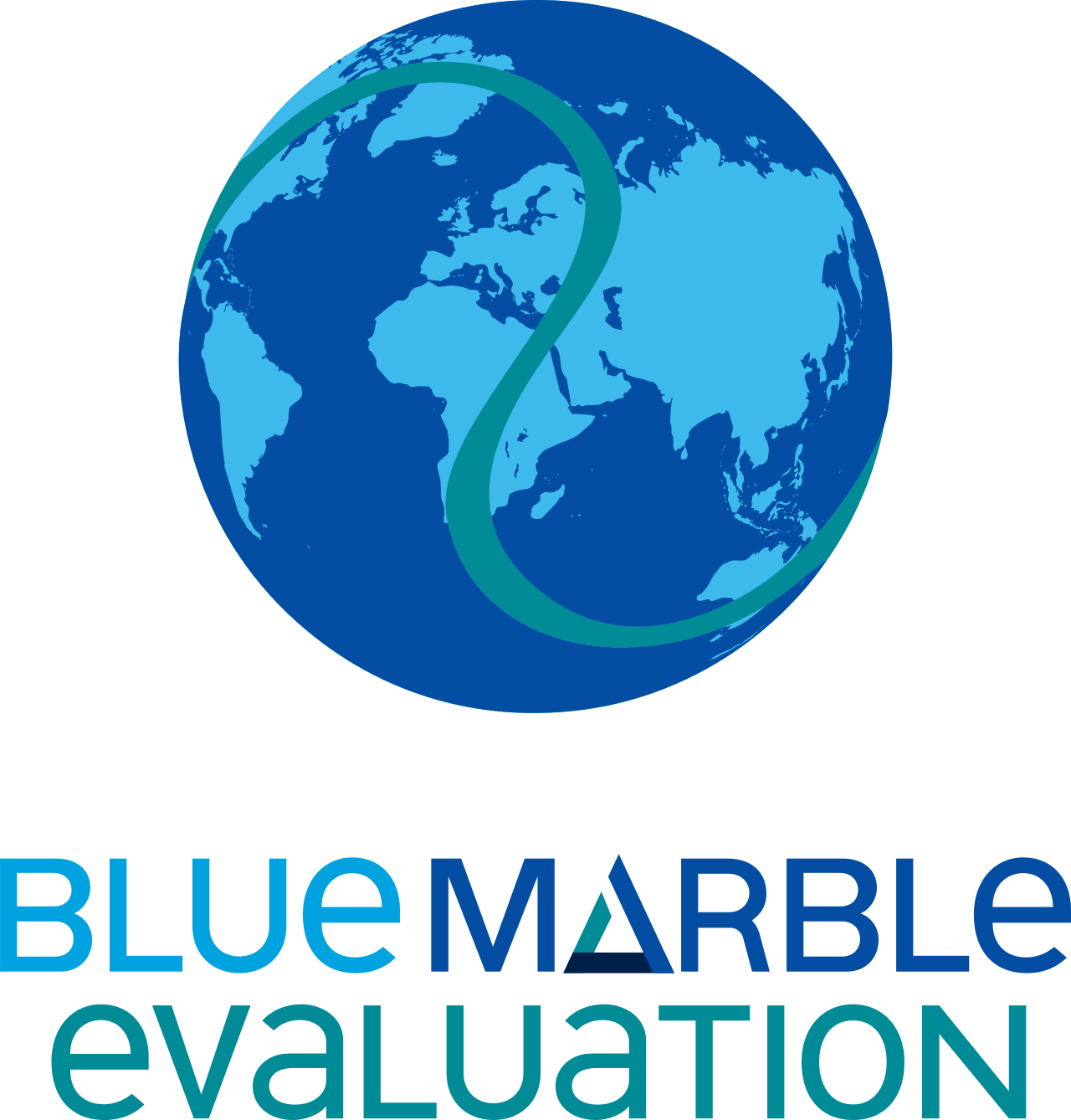Trust matters for transformation. The Blue Marble theory of transformation hypothesizes that transformation requires multiple actors, networks, organizations, movements, and individuals actively finding common ground thereby magnifying their separate efforts collectively to create critical mass and tipping points. A theory of transformation integrates and aligns multiple theories of change. One important constituent theory of change in support of transformation is the necessity of building, nurturing, and sustaining trust in the “global commons,” a way of designating our shared interest in the future sustainability of humanity from a Blue Marble (whole Earth) perspective. This blog reviews the important concept of moving at the speed of trust with the latest global data on who is trusted and uses those findings to highlight what we know about trust from 2009 Nobel Prize-winning economist Elinor Ostrom. First the data, then a Blue Marble Evaluation interpretation of the implications of the data.
Trust in categories of professionals
The 2019 Ipsos Global Trust in Professions Survey report provides trust assessments from 19,587 online adults aged 16-74 across 23 countries. A five-point scale solicited ratings of professions as “Very Trustworthy” to “Very Untrustworthy”. Below are the results ranking professional groups as “very trustworthy.”
- Scientists 60%
- Doctors 56%
- Teachers 52%
- Armed Forces 43%
- Police 38%
- Ordinary men/women 37%
- Judges 32%
- Lawyers 25%
- Television news readers 24%
- Pollsters 23%
- Civil servants 23%
- Business leaders 22%
- Journalists 21%
- Clergy/priests 21%
- Bankers 20%
- Advertising executives 13%
- Government ministers 12%
- Politicians generally 9%
Source: 2019 Ipsos Global Trust in Professions, 19,587 online adults 16-74 across 23 countries
Evaluation and Trust
Evaluators are not among the groups ranked, but the results tell us with whom we want to be associated: scientists. In a 2018 American Journal of Evaluation article, I made the case for Evaluation Science. Scientists study how the world works. Evaluation scientists study how, and how well, efforts to change the world works. Blue Marble Evaluation scientists/practitioners work with sustainability scientists, climate scientists, environmental scientists, applied social scientists, and other scientists to generate credible and useful findings in support of transformation in the face of the global emergency humanity faces (link to blog on global emergency). In fact, we are the ones often called upon to evaluate and help to develop the most leading-edge advances in science. We are also often called on to facilitate group processes that help to identify credible, useful, and actionable knowledge priorities, a process of facilitation guided by the speed at which trust can be established.
Trust in the Global Commons
Trust takes on central importance in the context of the global emergency because transformative solutions must be negotiated and implemented among highly diverse and competing institutional entities: nation-states, international governing entities, multinational corporate interests, worldwide networks of advocates and activists, to name but a few examples. This requires “polycentric governance” of complex economic systems as conceptualized by Elinor Ostrom, recipient of the 2009 Nobel Memorial Prize in Economics Sciences for her insights into economic governance, especially in the Commons, including the Global Commons. She concluded:
“Empirical studies confirm the important role of trust in overcoming social dilemmas…as the most efficient mechanism to enhance transactional outcomes” (Ostrom, 2010).

“Humans have a more complex motivational structure and more capability to solve social dilemmas than posited in earlier rational-choice theory. Designing institutions to force (or nudge) entirely self-interested individuals to achieve better outcomes has been the major goal posited by policy analysts for governments to accomplish for much of the past half century. Extensive empirical research leads me to argue that instead, a core goal of public policy should be to facilitate the development of institutions that bring out the best in humans.”
Both scientific progress and increasing effectiveness based on evaluation findings require open dialogue, mutual understanding, and a culture of trust. This takes time and can be accelerated with evaluative rigor and thoughtful facilitation. Problems of the commons exist in a wide variety of settings ranging in size and complexity from the family (e.g., the household budget and family priorities) to the global scale (e.g., loss of biodiversity, species extinction, and climate change). The speed of trust is an important component of cooperation in the commons because commons are extremely vulnerable to conflict and manipulation by a few against the interests of the many. As Ostrom put it in her 2009 Nobel Prize lecture:
“The updated theoretical assumptions of learning and norm-adopting individuals can be used as the foundation for understanding how individuals may gain increased levels of trust in others, leading to more cooperation and higher benefits with feedback mechanisms that reinforce positive or negative learning. It is not only that individuals adopt norms but also that the structure of the situation generates sufficient information about the likely behavior of others to be trustworthy reciprocators who will bear their share of the costs of overcoming a dilemma.”
Whence cometh the feedback she identifies as critical? Who can support the learning needed for shared governance effectiveness? Who can provide the information needed to nurture trust? Her writings identify the need for trustworthy information to enhance interpersonal and group trust, but not how that need will be met. Enter evaluation science and Blue Marble Evaluation scientists/practitioners.
Principles-Focused Evaluation
Ostrom has offered eight principles for designing effective self-governance in a commons, both local and global.
- Define clear group boundaries.
- Match rules governing use of common goods to local needs and conditions.
- Ensure that those affected by the rules can participate in modifying the rules.
- Make sure the rule-making rights of community members are respected by outside authorities.
- Develop a system, carried out by community members, for monitoring members’ behavior.
- Use graduated sanctions for rule violators.
- Provide accessible, low-cost means for dispute resolution.
- Build responsibility for governing the common resource in nested tiers from the lowest level up to the entire interconnected system.
The principles of Blue Marble Evaluation align well with Ostrom’s principles for polycentric governance. Ostrom’s ideal of polycentric governance depends on participants in decision-making and problem-solving having and using high quality, credible information. Trusting each other over time is built on trusting shared information and knowledge over time. Of equal importance to trustworthy data for decision-making, the success of the commons depends on evaluating adherence to the shared principles of governance. Principles-Focused Evaluation offers a framework for supporting effective principles-based governance. Credible, meaningful, and actionable feedback on adherence to governing principles becomes an essential role that Blue Marble Evaluation Scientists can play in strengthening the functioning of polycentric governance systems that will be crucial to realize global transformation. Moving at the speed of trust is about sense making around how this is being developed and acting accordingly. There will be moments of acceleration and moments of slowing down, that is part of the sense-making activity.
The literature on governance in the global commons offers principles, processes, win-win negotiating stances, decision-making and problem-solving mechanisms, organizational and institutional guidance, and other factors needed for success. What is missing from those formulations about how to support effective polycentric governance for the global commons is how to supply the participants with credible, trustworthy, useful, and actionable information over time to inform negotiations and decision-making aligned with the principles of effective governance. Blue Marble practitioners can fill that critical niche. Indeed, if that niche is not filled and executed astutely with world savvy and a sense of urgency, polycentric governance in the global commons will fail. Evaluation cannot be an afterthought, add-on, or mere compliance function in the design of such systems. Thus, I would offer a 9th principle to Ostrom’s list:
9. Ensure that the polycentric governance group has access to and uses credible and trustworthy evaluative information based on rigorous evaluative thinking and skilled facilitation over time to monitor adherence to shared principles and evaluate the transformative trajectory of decisions taken, actions implemented, and degree and nature of trust developed over time.
REFERENCES
- Ostrom, Elinor. (1990). Governing the Commons: The Evolution of Institutions for Collective Action. Cambridge, U.K: Cambridge University Press,
- Ostrom, E. (2010). Beyond markets and states: polycentric governance of complex economic systems. American Economic Review, 100 (3), 641-72.
Acknowledgement: Thanks to Glenn Page for useful comments and the phrase “moving at the speed of trust.


